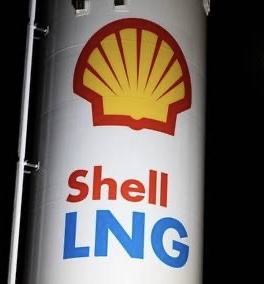KEY POINTS
- Shell and Egypt’s petroleum ministry reviewed ongoing projects in the West Delta Deep Marine concession and kicked off Phase 11 production.
- Both parties discussed collaboration on Cyprus’ Aphrodite gas field and reaffirmed Shell’s long-term commitment to Egypt.
- The Idku LNG plant was recognized as a major success of Shell-Egypt cooperation, contributing to the country’s energy export strategy.
Shell is expanding its natural gas operations in Egypt, reaffirming its long-term commitment to the country’s energy sector.
During a high-level meeting held in Cairo, Karim Badawi, Egypt’s Minister of Petroleum and Mineral Resources, welcomed a senior Shell Global delegation to review recent developments in the company’s upstream activities, particularly in the West Delta Deep Marine (WDDM) concession.
The Shell delegation was led by Cederic Cremers, Executive Vice President of Shell’s Integrated Gas Business, and included Dalia Elgabry, Vice President and Country Chair of Shell Egypt, and Azza Shelbaya, Head of Corporate Relations at Shell Egypt.
The discussions focused on the results of Phases 10 and 11 of the WDDM project, which has already commenced early production under Phase 11.
In a bid to deepen cooperation, Shell and the Egyptian ministry explored joint strategies to unlock more gas potential and initiate new production phases in key exploration zones.
Badawi Highlights Readiness to Support Shell
Karim Badawi highlighted Egypt’s political will and government readiness to support international oil and gas partners like Shell.
He emphasized the country’s ambition to become a regional energy hub and foster greater integration with neighboring countries. “Egypt remains committed to creating a favorable investment environment for energy firms and achieving regional gas interconnectivity, especially with Cyprus,” he said. Egypt currently receives gas from Cyprus’ Aphrodite and Cronos fields through its extensive infrastructure network.
Cremers, speaking on Shell’s behalf, noted the country’s vast potential for natural gas development. “Egypt has all the ingredients to scale as a regional energy powerhouse,” he stated. “Shell is fully aligned with the government’s vision and stands ready to contribute through innovation and continued investment.”
A key area of shared interest is the Cypriot Aphrodite field, where Shell holds a stake and plans to channel gas output to Egypt. Both sides reaffirmed their dedication to that cooperation, with the Idku Liquefied Natural Gas (LNG) plant presented as a flagship model of a successful partnership. Idku’s infrastructure plays a strategic role in Egypt’s growing LNG export capacity, particularly to Europe and Asia.
Shell’s relationship with Egypt spans over 110 years, during which it has operated across the full spectrum of the energy value chain—upstream exploration, midstream logistics, and downstream distribution. Its legacy in the country is rooted in long-standing collaboration and efforts to unlock Egypt’s natural resources for global markets.
In a region where energy diplomacy is increasingly important, Egypt’s alliance with Shell is more than just commercial—it underpins the country’s strategy to leverage natural gas as a geopolitical asset.
Future discussions are expected to focus on scaling investments and advancing regional projects with partners from Europe and the Eastern Mediterranean.



